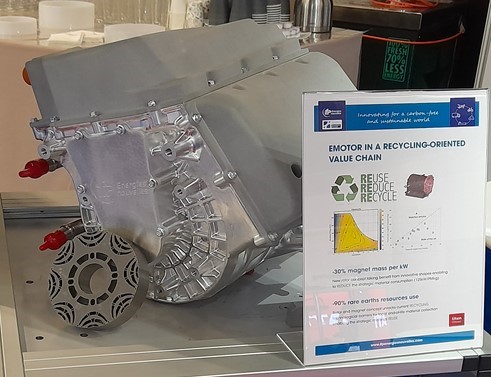Electric motors are central to the transition to sustainable mobility. Yet less than 1% of spent magnets from discarded motors are currently being recycled. Because traditionally-shaped magnets must often be permanently assembled with the motors, removing them is particularly tricky. However, this could be about to change, thanks to an innovative solution that saves on rare earth elements and makes electric motor batteries easier to remove for recycling.
The key is factoring the disassembly process into the magnet design process from the start. In this case, complex shapes were investigated as an ideal solution. But conventional subtractive manufacturing methods like machining are not well-suited to intricate geometries. The removal of material causes significant loss and increased costs.
The Melchior project, a partnership between CEA-Liten and IFPEN, led to the development of an eco-friendly electric motor tailored to automotive industry specifications. The cornerstone of this innovation lies in the magnet shapes, which allow for effortless disassembly and recovery. Plus, with power output of 125 kW per kg of permanent magnet and 30% overall material savings, this innovative motor outperforms the state of the art.

Eco-friendly eElectric motor presented by IFPEN at the SIA Powertrain 2023 conference
A new process called Power Injection Molding (PIM) was developed to allow near-net-shape manufacturing of the permanent magnets. The process parameters were optimized to achieve the correct microstructure and magnetic properties while addressing the carbon contamination issue specific to PIM. The magnets' magnetic performance is on par with traditionally-manufactured magnets.
In terms of environmental impact, a preliminary Life Cycle Assessment showed that the more complex the magnet shape, the greater the material losses during conventional machining, giving PIM a significant advantage. A further 35% reduction in the CO2 emissions required to manufacture magnets is expected, based on the use of short-path magnet recycling.
The Melchior project is playing an active part in advancing the recycling of magnets used in electric motors. The eco-designed motor and innovative processes developed by CEA-Liten and IFPEN will support more sustainable mobility, a pillar of the energy transition.